by Zamir Aiylchyev, from the Anti-Corruption Business Council under the President of the Kyrgyz Republic.
From October to December 2024, I participated in a research secondment at the Institute of International Relations and Political Science (IIRPS) at Vilnius University in Lithuania. The primary goal of this secondment was to study the experiences of Lithuania and the Baltic states in preventing and combating corruption. I chose Lithuania as my research destination because of the remarkable success of Lithuania and the Baltic states in reducing corruption and improving governance. Their accession to the European Union in 2004 played a key role in strengthening transparency, the rule of law, and effective governance, significantly reducing corruption levels. According to Transparency International’s 2023 Corruption Perceptions Index, Estonia ranked 12th globally with a score of 76, Lithuania ranked 34th with 61 points, and Latvia ranked 36th with 60 points. These results reflect the impact of strong political will, effective legal frameworks, and the integration of digital transformation. The lessons from the Baltic states provide a valuable model for Kyrgyzstan. By adopting and adapting these practices, Kyrgyzstan can improve the transparency of public services and achieve a better position in international rankings.
About the Institute of International Relations and Political Science (IIRPS) The IIRPS is one of Lithuania’s most prestigious academic institutions, operating as part of Vilnius University, which was established in 1579. Founded in 1992, the institute focuses on training professionals and conducting research in international relations, political science, and related fields. The institute offers:
– Bachelor’s Programs: Providing foundational knowledge in political science and international relations.
– Master’s Programs: Offering advanced studies in political analysis, international security, and specialized areas of international relations.
– Doctoral Programs: Supporting research and advanced academic work in political science and related disciplines.
The Institute of International Relations and Political Science IIRPS promotes research in key areas such as political, social, and economic changes in the post-Soviet region, European international law, and diplomacy. The institute collaborates closely with domestic and international organizations, governments, NGOs, and universities. It also participates in exchange programs within frameworks like the European Union and NATO, hosting international conferences, seasonal schools, and thematic seminars. During my secondment, I attended five to six key seminars and connected with a diverse group of people, including professors, researchers, and students from Europe and Central Asia. These interactions allowed me to share insights about Kyrgyzstan’s culture and political system while learning from others’ perspectives.
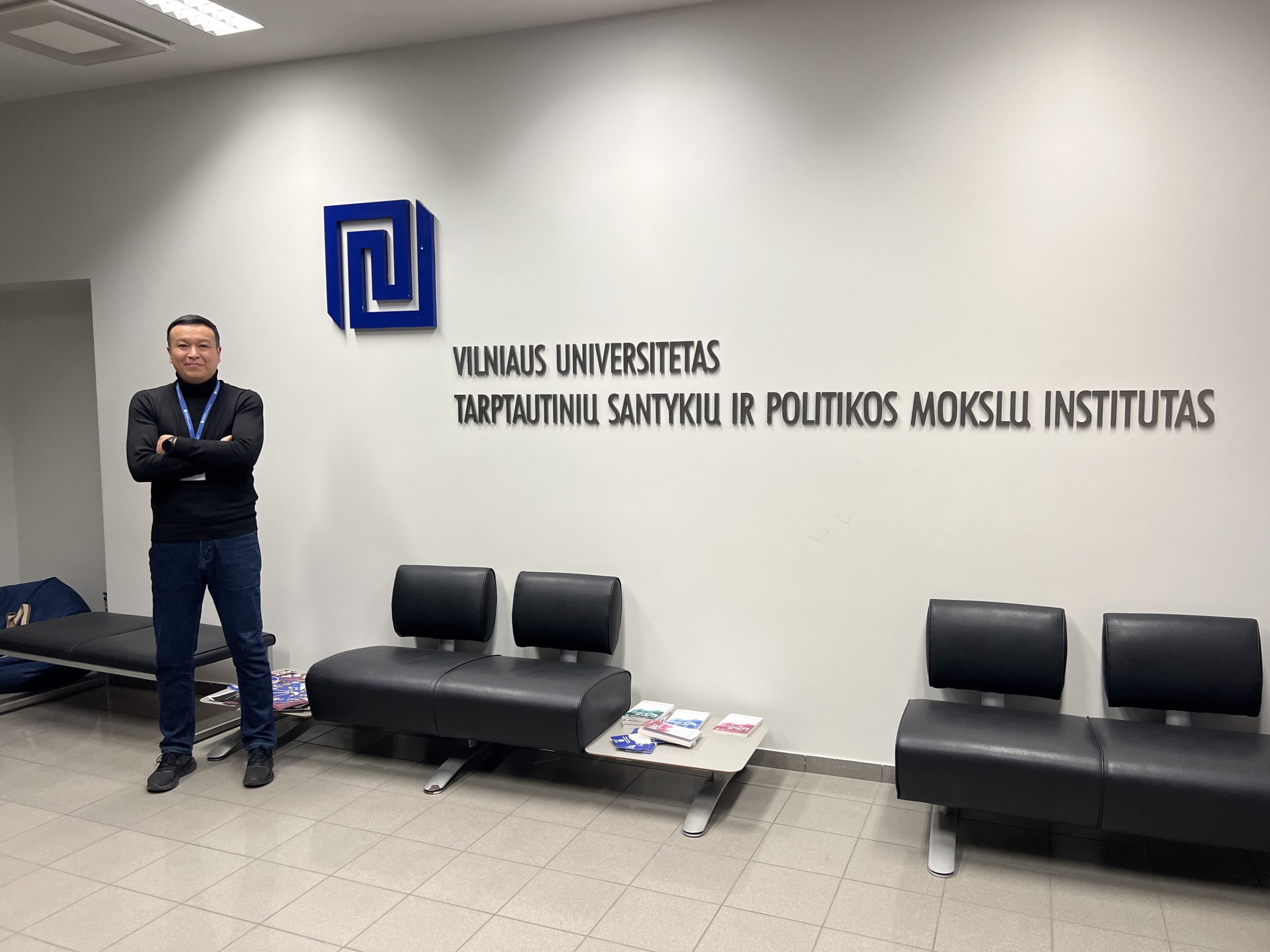
On November 21, 2024, I met with representatives of the Lithuanian Special Investigation Service (STT). Originally planned with Deputy Director Mr. Egidijus Radzevicius, I instead met with Ms. Dovile Barole, a Senior Specialist in the International Relations Department, due to schedule changes. The meeting offered valuable insights into STT’s work. Established under the 2000 “Law on the Special Investigation Service,” the STT is tasked with investigating corruption offenses, developing preventive measures, and promoting transparency. The agency also has a dedicated Prevention Division focusing on raising public awareness and enhancing anti-corruption mechanisms. 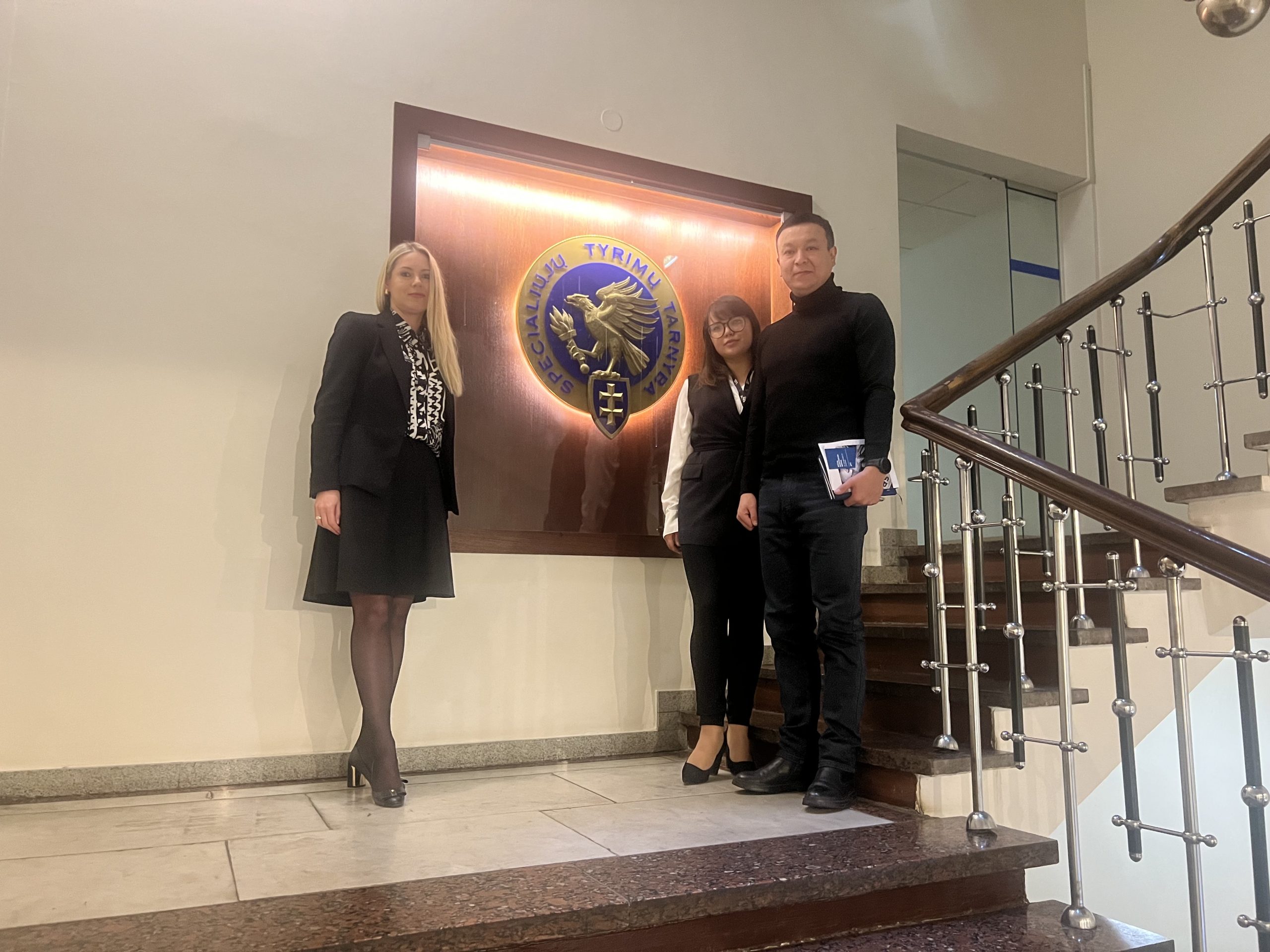
On November 26, 2024, I met Ms. Ingrida Kalinauskene, Head of Transparency International’s Lithuanian Chapter. This meeting, facilitated by my colleague Professor Konstantinos, provided in-depth information about Lithuania’s strategies for combating corruption. Ms. Kalinauskene highlighted the importance of political will in driving anti-corruption reforms. I shared how similar political will has been demonstrated in Kyrgyzstan under President Sadyr Japarov, who established the Anti-Corruption Business Council in 2021. This council spearheaded the development of the National Anti-Corruption Strategy for 2025–2030, aiming to strengthen political stability, boost economic growth, and improve Kyrgyzstan’s international standing.

On December 13, 2024, I delivered a seminar titled “What is the Secret Behind the Baltic States’ Success in Combating Corruption?” at the IIRPS. The seminar compared the anti-corruption approaches of Estonia, Latvia, and Lithuania with those of Kyrgyzstan. While the Baltic states have successfully implemented strong legislation, political determination, and digital tools, Kyrgyzstan’s recent reforms show promise but still require significant progress, as evidenced by its 141st ranking in Transparency International’s 2023 index. The seminar offered practical recommendations for enhancing Kyrgyzstan’s anti-corruption efforts.
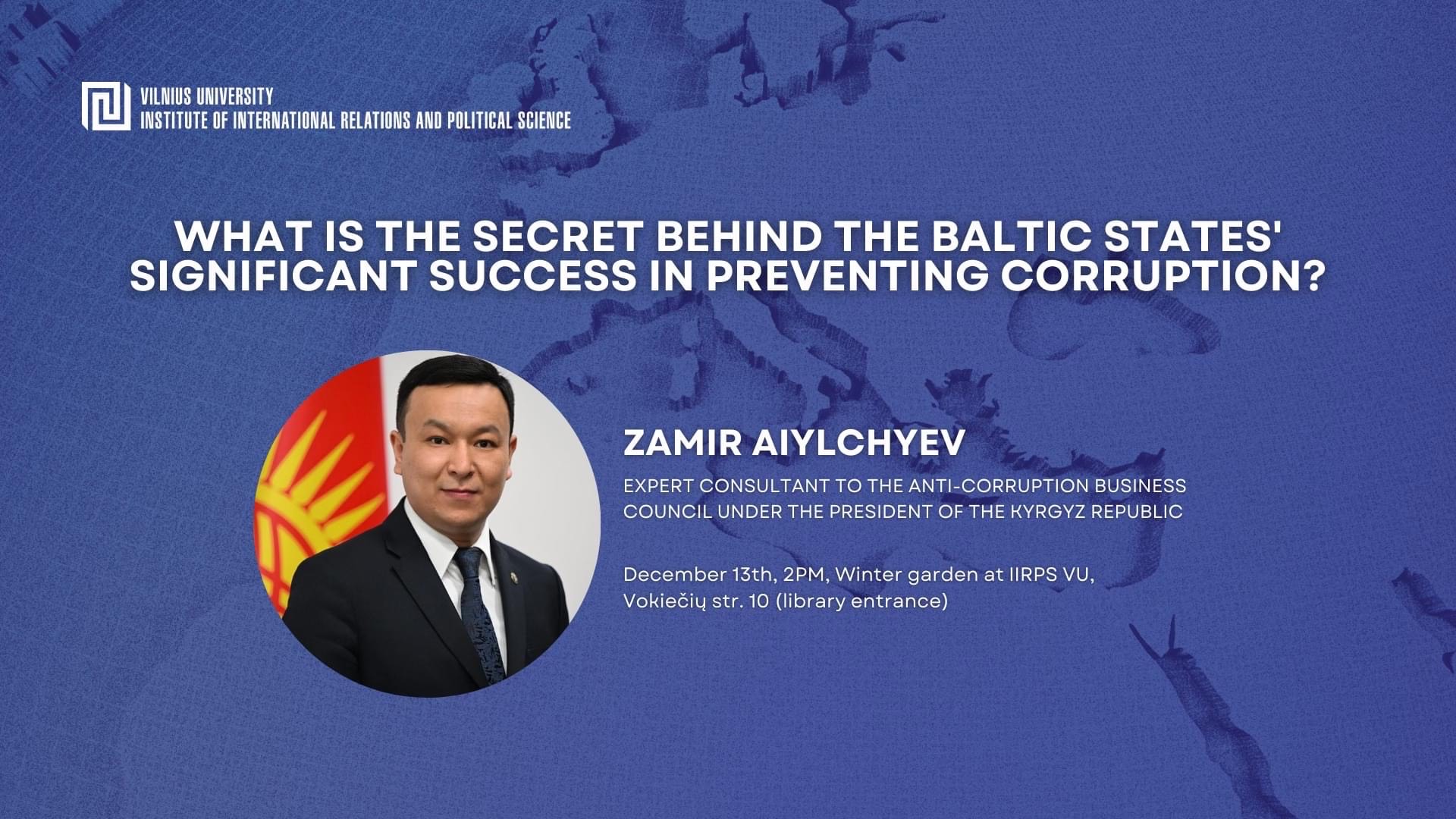
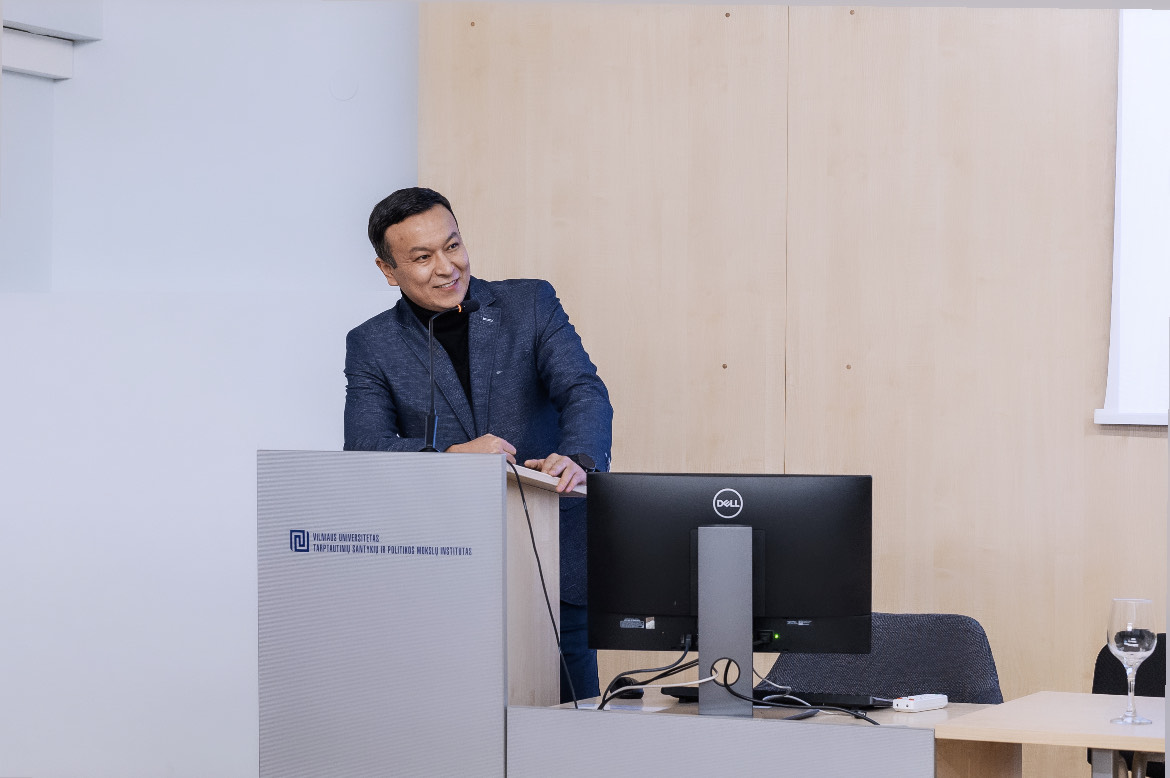
When I arrived in Vilnius, adjusting to the city’s climate and living conditions was very easy. The climate in Vilnius is similar to that of Bishkek, the capital of Kyrgyzstan, which made the adaptation process smooth and effortless. Vilnius is a city rich in history, with its roots tracing back to the 14th century. It was first mentioned in written records in 1323 by Duke Gediminas. During that period, Vilnius emerged as a major hub for trade, politics, and culture in Eastern Europe. By the 15th and 16th centuries, it had become the administrative and cultural center of the Grand Duchy of Lithuania. Merchants, craftsmen, and people of various ethnicities traveled to Vilnius from as far as Crimea and different corners of Europe. The city saw the development of schools, churches, palaces, and a thriving cultural and scientific scene.
Today, Vilnius stands out with its modern infrastructure, ancient churches, and welcoming residents, creating an ideal environment for research and professional development. In 1994, the Old Town of Vilnius was inscribed on the UNESCO World Heritage List. This historic district features medieval architectural landmarks, baroque-style churches, and buildings of great historical significance. The political and socio-economic landscape of Vilnius has been significantly influenced by the First and Second World Wars. The city experienced occupations, alliances, and divisions, repeatedly coming under the control of neighboring powers. In 1940, Lithuania became part of the Soviet Union, but in 1990, the country regained its independence, with Vilnius reestablished as the capital of a sovereign Lithuania. Today, Vilnius is one of the leading cultural, economic, and educational centers in the Baltic region. Vilnius is not only rich in history and culture but also a city of learning. Thousands of international students come to Vilnius University every year to pursue their education. I was particularly impressed by the university’s advanced libraries, state-of-the-art classrooms, and overall conducive environment, which significantly facilitated my research activities. The city’s inclusive atmosphere and focus on fostering international collaboration made my work highly productive, allowing me to gain valuable experiences and expand my network. Vilnius truly stands out as a city where history, culture, and modern academic excellence merge, offering a unique experience for both visitors and residents alike.
I would like to take this opportunity to express my profound gratitude to the entire team at the Institute of International Relations and Political Science of Vilnius University for their comprehensive support and assistance during my business trip. In particular, I extend my sincerest thanks to Professor Konstantinos of Vilnius University, Ms. Rasa Bortkevicute, Head of the Research Department, and Mr. Benas Putrimas, Research Communications Coordinator, for their invaluable help throughout my stay.
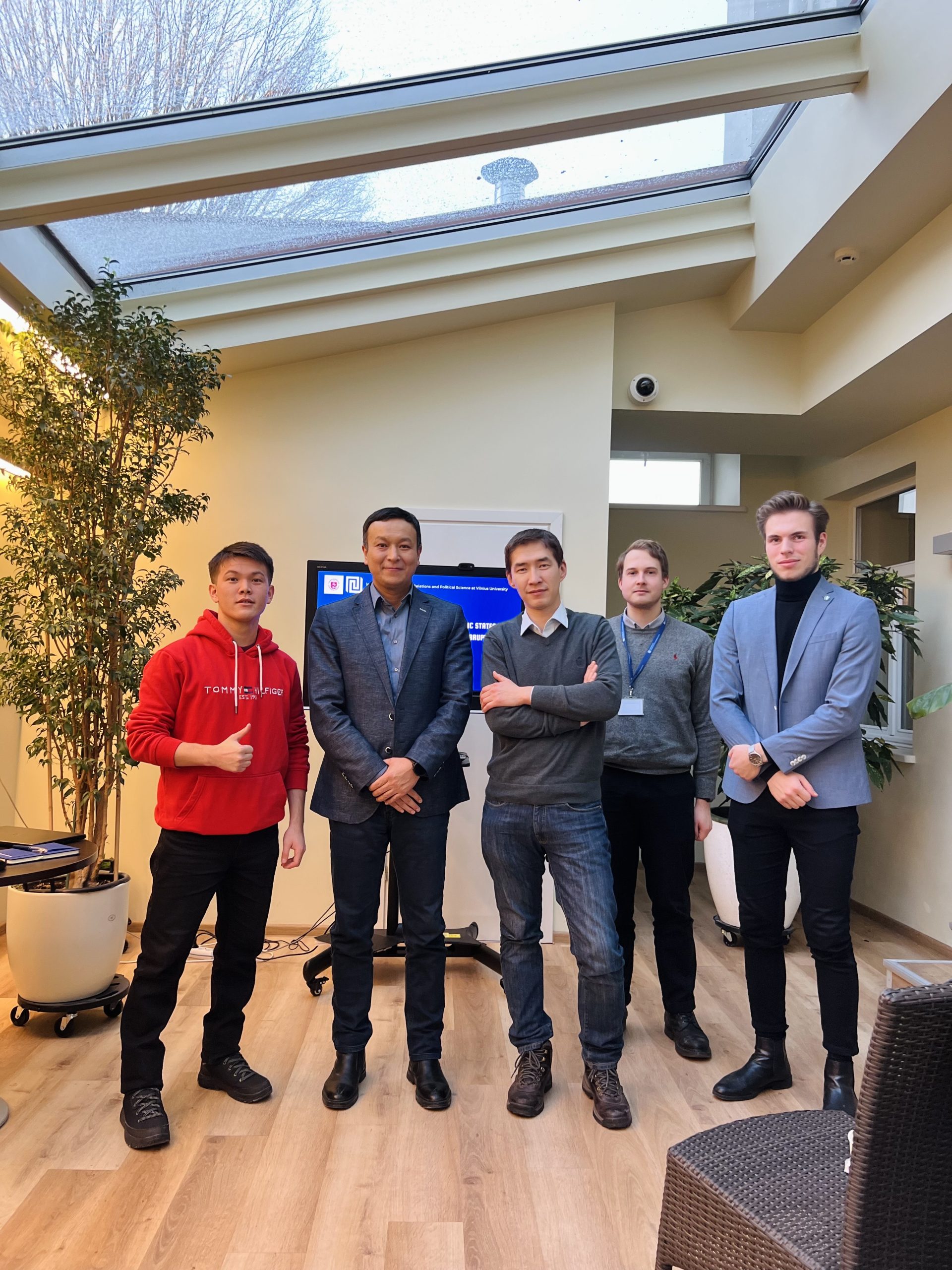
I would also like to extend my profound gratitude to the Department of Sociology of Law at Lund University and the project team for their professionalism and high-level support in successfully organizing this visit under the MOCCA project.
The insights and knowledge gained during this experience will play a crucial role in strengthening Kyrgyzstan’s efforts to combat corruption and improve governance.
